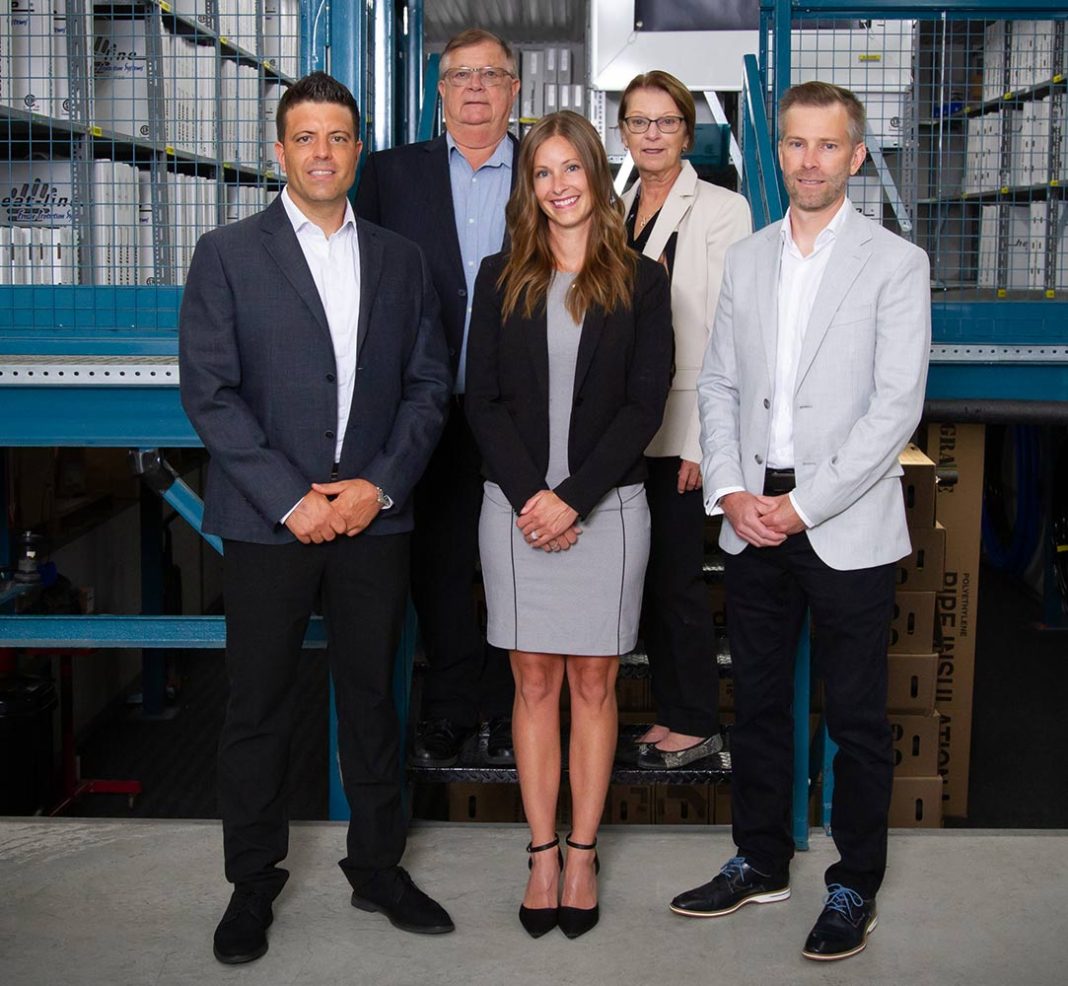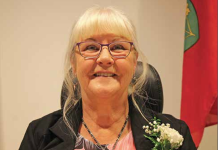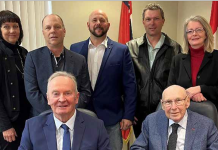It’s a new era at Heat-Line Freeze Protection Systems, with the Algonquin Highlands-based business recently announcing a change in leadership.
Founders Lorne and Robin Heise, who started the company in 1988, have handed it over to the next generation. Their children, Brent Heise and Laura Roberts, have become vice presidents, while their son-in-law Matthew Roberts has succeeded Lorne as president.
Matthew Roberts told The Highlander the move is the formalization of a multi-year succession plan, which he said positions the company well for the future. Lorne and Robin are staying on in strategic positions, he said.
Heat-Line specializes in developing and manufacturing advanced heating cable, heat trace wire, and water pipe freeze protection solutions for residential and commercial markets. Roberts said the business serves four key segments – plumbing, electrical, retail, and original equipment manufacturers.
He said Heat-Line has increased its operations “double digits percentage-wise” over the past year, with a focus on expanding its business with those in the electrical sector. Roberts said the company recently completed its first strategic plan, which he said provides a roadmap for how Heat-Line will navigate the next five years. The company boasts 31 employees.
With about 32 per cent of the company’s sales in 2024 being U.S. based, and 40 per cent value-wise of HeatLine’s raw materials coming from the States, Roberts said the company is tied to the U.S. market for the foreseeable future.
Roberts said Heat-Line has been minimally impacted by the ongoing trade war between Canada and the U.S.
“Our sales have not been impacted – 95 per cent of our products are USMCA-registered products (United StatesMexico-Canada Agreement) and fortunately, those products haven’t been affected. Have there been challenges? Yes. There are certain products, things that are aluminum-based, but for the most part we’ve been passing that on to the U.S. consumer,” Roberts said, noting some products have been hit with a 50 per cent tariff.
The company has also been hindered by the U.S. scrapping its de minimis rule. Through that legislation, packages could cross into the U.S. without formal entry if they were valued at less than $800, but lawmakers got rid of it in August. That’s created a backlog across all processing, with customs required to process an extra four million parcels every day.
“There’s absolutely nothing we can do about it – it could take the standard amount of time for things to cross, which is two days, or it could take two-to-three weeks,” Roberts said. “It’s created a challenge for us because we have a lot of packages stuck at the border. We’ve been eating costs and shipping multiples of the same item, hoping one gets through and then we can try to get the others back.”
Roberts said many products are also being processed incorrectly, at higher tariff rates, saying Heat-Line typically has between 70 and 80 ongoing disputes with customs.
While Roberts said Heat-Line will never leave its home base in the Highlands, the company is looking to expand into the U.S.
“Having a U.S. location is on our radar. It may happen, it may not, but it’s always been a long-term strategic priority for us. It would be an addition to and complement what is already existing; it would never be relocating resources from here to the U.S.,” he said.
For more information on the company, visit https://heatline.com.





